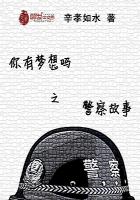The author of the Menexenus, whether Plato or not, is evidently intending to ridicule the practice, and at the same time to show that he can beat the rhetoricians in their own line, as in the Phaedrus he may be supposed to offer an example of what Lysias might have said, and of how much better he might have written in his own style. The orators had recourse to their favourite loci communes, one of which, as we find in Lysias, was the shortness of the time allowed them for preparation. But Socrates points out that they had them always ready for delivery, and that there was no difficulty in improvising any number of such orations. To praise the Athenians among the Athenians was easy,--to praise them among the Lacedaemonians would have been a much more difficult task. Socrates himself has turned rhetorician, having learned of a woman, Aspasia, the mistress of Pericles; and any one whose teachers had been far inferior to his own--say, one who had learned from Antiphon the Rhamnusian--would be quite equal to the task of praising men to themselves. When we remember that Antiphon is described by Thucydides as the best pleader of his day, the satire on him and on the whole tribe of rhetoricians is transparent.
The ironical assumption of Socrates, that he must be a good orator because he had learnt of Aspasia, is not coarse, as Schleiermacher supposes, but is rather to be regarded as fanciful. Nor can we say that the offer of Socrates to dance naked out of love for Menexenus, is any more un-Platonic than the threat of physical force which Phaedrus uses towards Socrates.
Nor is there any real vulgarity in the fear which Socrates expresses that he will get a beating from his mistress, Aspasia: this is the natural exaggeration of what might be expected from an imperious woman. Socrates is not to be taken seriously in all that he says, and Plato, both in the Symposium and elsewhere, is not slow to admit a sort of Aristophanic humour. How a great original genius like Plato might or might not have written, what was his conception of humour, or what limits he would have prescribed to himself, if any, in drawing the picture of the Silenus Socrates, are problems which no critical instinct can determine.
On the other hand, the dialogue has several Platonic traits, whether original or imitated may be uncertain. Socrates, when he departs from his character of a 'know nothing' and delivers a speech, generally pretends that what he is speaking is not his own composition. Thus in the Cratylus he is run away with; in the Phaedrus he has heard somebody say something--is inspired by the genius loci; in the Symposium he derives his wisdom from Diotima of Mantinea, and the like. But he does not impose on Menexenus by his dissimulation. Without violating the character of Socrates, Plato, who knows so well how to give a hint, or some one writing in his name, intimates clearly enough that the speech in the Menexenus like that in the Phaedrus is to be attributed to Socrates. The address of the dead to the living at the end of the oration may also be compared to the numerous addresses of the same kind which occur in Plato, in whom the dramatic element is always tending to prevail over the rhetorical. The remark has been often made, that in the Funeral Oration of Thucydides there is no allusion to the existence of the dead. But in the Menexenus a future state is clearly, although not strongly, asserted.
Whether the Menexenus is a genuine writing of Plato, or an imitation only, remains uncertain. In either case, the thoughts are partly borrowed from the Funeral Oration of Thucydides; and the fact that they are so, is not in favour of the genuineness of the work. Internal evidence seems to leave the question of authorship in doubt. There are merits and there are defects which might lead to either conclusion. The form of the greater part of the work makes the enquiry difficult; the introduction and the finale certainly wear the look either of Plato or of an extremely skilful imitator. The excellence of the forgery may be fairly adduced as an argument that it is not a forgery at all. In this uncertainty the express testimony of Aristotle, who quotes, in the Rhetoric, the well-known words, 'It is easy to praise the Athenians among the Athenians,' from the Funeral Oration, may perhaps turn the balance in its favour. It must be remembered also that the work was famous in antiquity, and is included in the Alexandrian catalogues of Platonic writings.















